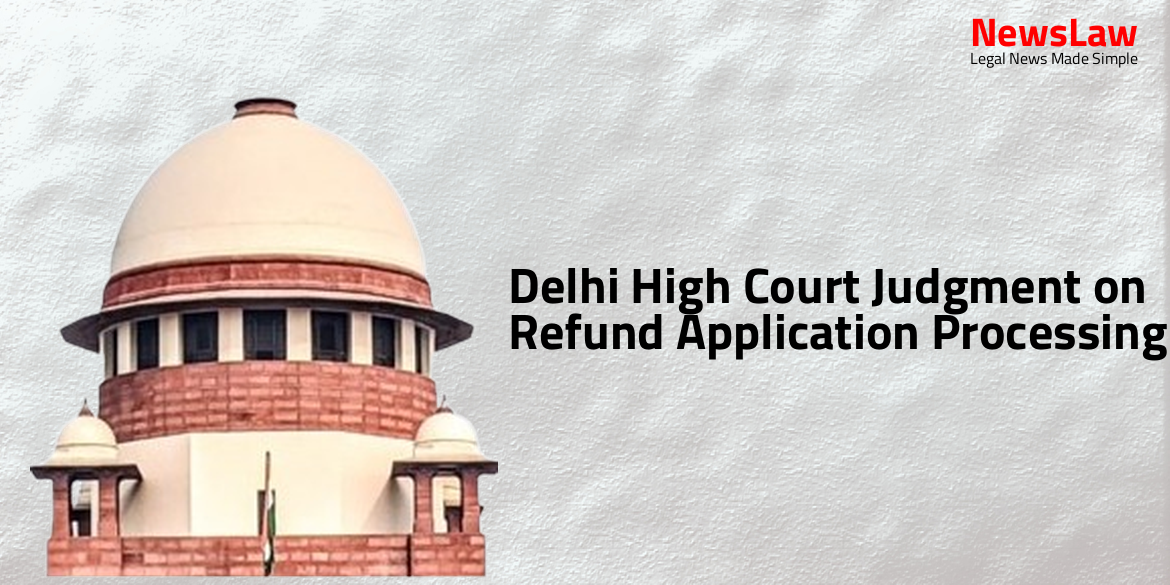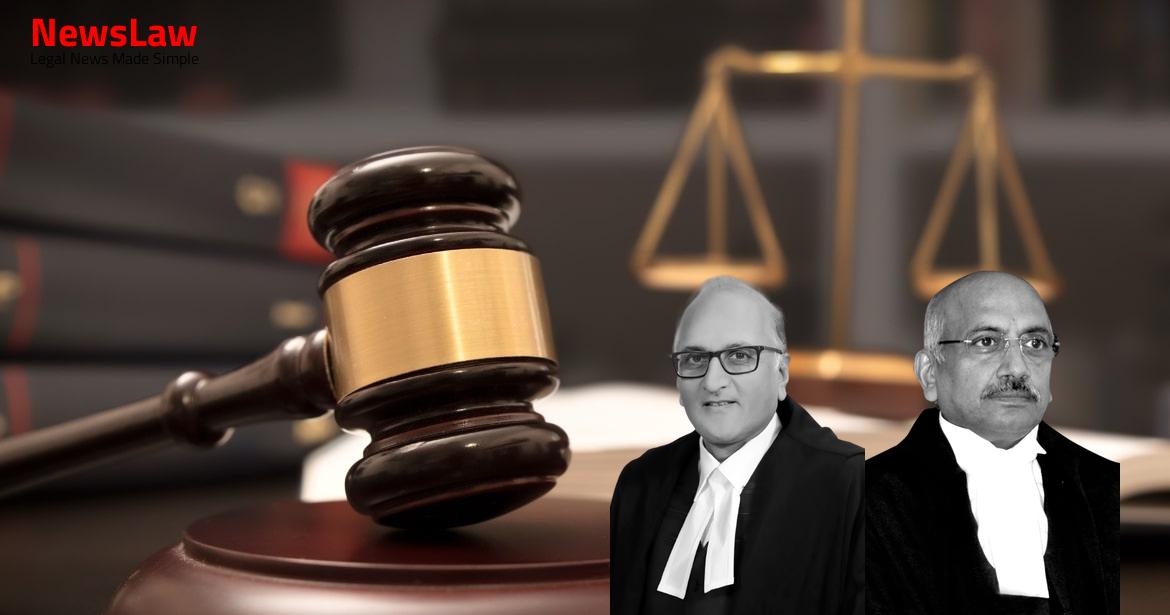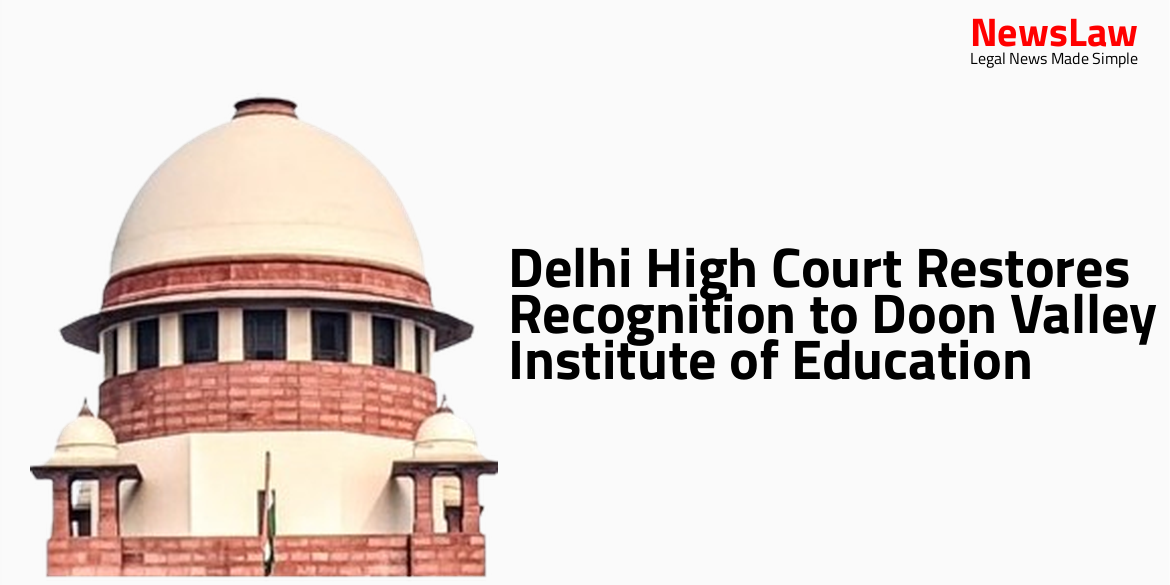In a recent landmark judgment, the Delhi High Court addressed the issues surrounding the refund application filed under the CGST Act, brought forward by the petitioner seeking refund of Rs.9,69,017. Referring to Section 54 of the Act, the court provided crucial directions for the issuance of refunds and highlighted the importance of adherence to the Circular issued by the Board. The court’s decision has significant implications on the processing of refund applications and sets guidelines for timely disbursement.
Facts
- Petitioner seeks refund of Rs.9,69,017/- as per Section 54 of CGST Act, 2017
- Petitioner requests interest on the refund amount
- Petitioner seeks direction from the court for issuance of refund
Arguments
- The ARG_RESPONDENT contended that the delay in processing applications and issuing refunds was due to the high volume of applications received.
- ARG_RESPONDENT argued that they have been making efforts to streamline the process and expedite the refund issuance.
- They submitted that issuing refunds within 60 days for all pending applications may not be practically feasible in all cases.
- ARG_RESPONDENT opposed the suggestion of payment of interest in case of delays in refund issuance.
Analysis
- Refund applications can now be filed electronically on the common portal, eliminating the need to visit tax offices.
- If a refund application is transmitted to the wrong jurisdictional officer, it must be reassigned promptly to the correct officer within three working days.
- Deficiency memos should not be issued solely due to applications being sent to the wrong jurisdiction.
- Applications are deemed filed upon the generation of Application Reference Number (ARN) and the time limit for acknowledgement or deficiency memo starts from this date.
- Refund applications must be filed in FORM GST RFD-01 on the common portal as per Circular No.125/44/2019-GST issued by the Board.
- The refund disbursement process must be completed within 60 days from the date of ARN generation.
- The authorized officers should comply with Circulars and Section 54(7) of the Act without additional directions.
- Acknowledgements or deficiency memos will be issued electronically based on the documents received from the common portal.
- All supporting documents must be uploaded electronically along with the refund application, including statements, declarations, and invoices.
- A list of required documents is provided at Annexure-A, and only these documents need to be submitted at the time of application.
- Uploading of documents is limited to four files of maximum 5MB each on the common portal.
- Physical submission of refund application or supporting documents to the tax office is not required.
- ARN will be generated only after completion of the filing process and uploading of all necessary documents.
- The amount should be debited from the electronic credit/cash ledger, where applicable, before ARN generation.
Decision
- The proper officer must consider the Circular of the Board and the provisions of the Act when passing the petition.
- The petition is disposed of with the mentioned terms.
- The proper officer is instructed to expedite the processing of the refund application within two weeks as the 60-day statutory period has passed.
- No deficiency memo has been issued to the petitioner since the filing of the refund claim on 22.01.2024.
- The petitioner is advised to seek further legal remedies for the refund and interest claim.
Case Title: SMARTADMEDIA THROUGH ITS SOLE PROPRIETORE NAVDEEP SINGH SAHNI Vs. COMMISSIONER OF DELHI GOODS AND SERVICE TAX & ANR. (2024:DHC:3805-DB)
Case Number: W.P.(C)-6517/2024



